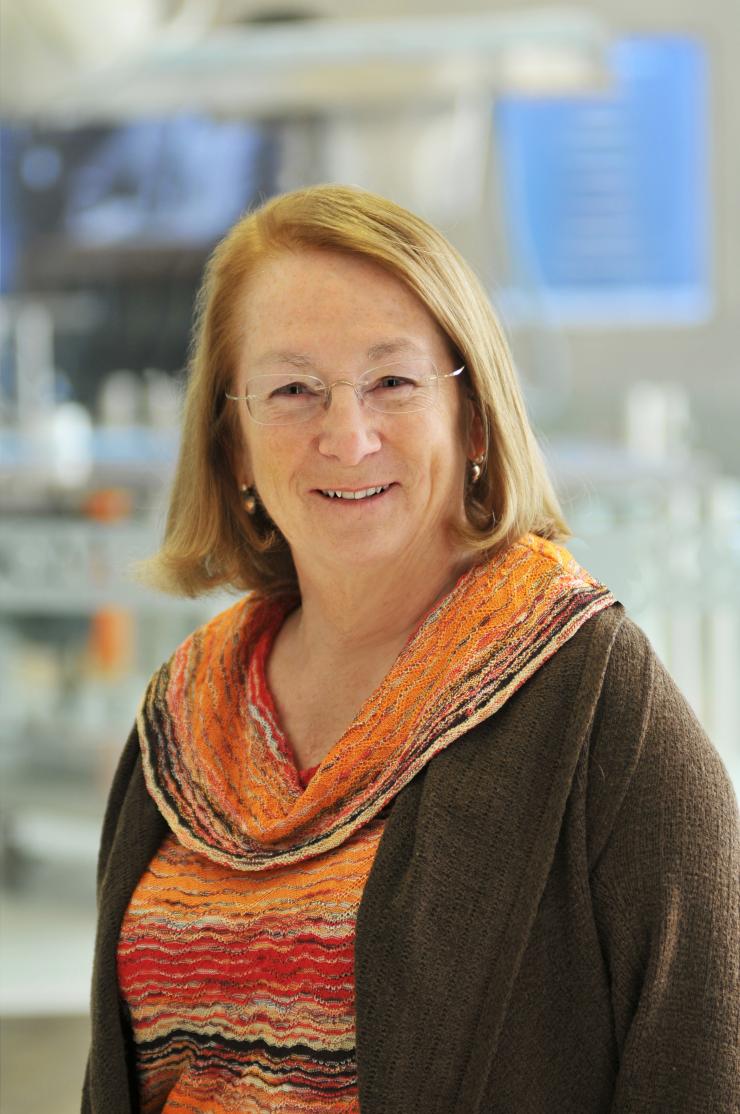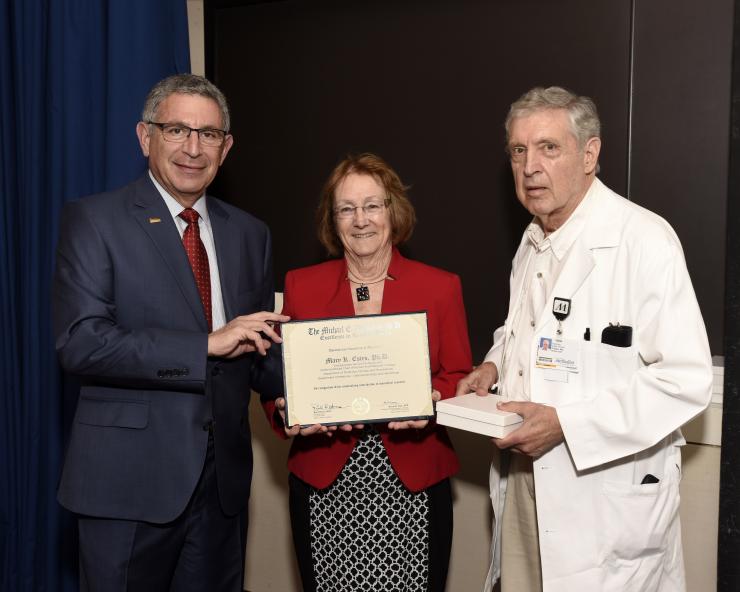Molecular Virology & Microbiology
2017 Recipient
Distinguished Service Professor and Cullen Endowed Chair of Human and Molecular Virology | Department of Molecular Virology and Microbiology | Department of Medicine – Gastroenterology and Hepatology
Dr. Mary Estes, a Distinguished Service professor of virology and microbiology, has concentrated her research on norovirus and rotavirus, the leading causes of food-borne gastroenteritis in children worldwide. In 2016, her paper in Science reported the development of the first replication system for noroviruses, solving a nearly 50 year old mystery and allowing researchers around the world to study the biology, pathogenesis and treatments against this major illness. The novel culture system consist of human intestinal epithelium preparations called enteroids or ‘mini-guts’ because under the microscope they look like a miniature intestine. In this system, researchers can now study human host-pathogen interactions, gaining insight into how noroviruses cause disease and answering questions such as why one strain of norovirus infects one person, but not another. On a previous work, she was the first to clone the norovirus genome and led the development of a new diagnostic test based on the viral proteins and genome. She also demonstrated that host susceptibility to norovirus infection depends on blood group antigens. Her lab also has developed virus-like particles, which are currently being tested as norovirus candidate vaccine in phase II clinical trials. In addition to the work with noroviruses, her lab has used the mini-guts to study rotavirus. In a 2017 publication in the Proceedings of the National Academy of Sciences, she revealed for the first time that rotavirus can fight back the immune response by antagonizing the interferon response at pre-and post-transcriptional levels. In 2016, a paper in the Journal of Virology was the first to establish a new model to study genetic susceptibility to rotavirus vaccines. Dr. Estes’ work with norovirus and rotavirus provides new opportunities for advancing basic and applied studies in viral gastrointestinal diseases.
Dr. Estes' nomination was based on the following publications:
Ettayebi K, Crawford SE, Murakami K, Broughman JR, Karandikar U, Tenge VR, Neill FH, Blutt SE, Zeng XL, Qu L, Kou B, Opekun AR, Burrin D, Graham DY, Ramani S, Atmar RL, Estes MK. Replication of human noroviruses in stem cell-derived human enteroids. J Science. 2016 Sep 23;353(6306):1387-1393. Epub 2016 Aug 25.
Saxena K, Simon LM, Zeng XL, Blutt SE, Crawford SE, Sastri NP, Karandikar UC, Ajami NJ, Zachos NC, Kovbasnjuk O, Donowitz M, Conner ME, Shaw CA, Estes MK. A paradox of transcriptional and functional innate interferon responses of human intestinal enteroids to enteric virus infection. Proc Natl Acad Sci U S A. 2017 Jan 24;114(4):E570-E579. doi: 10.1073/pnas.1615422114. Epub 2017 Jan 9.
Qu L, Murakami K, Broughman JR, Lay MK, Guix S, Tenge VR, Atmar RL, Estes MK. Replication of Human Norovirus RNA in Mammalian Cells Reveals Lack of Interferon Response. J Virol. 2016 Sep 12;90(19):8906-23. doi: 10.1128/JVI.01425-16. Print 2016 Oct 1.
1995 Recipient

Molecular dissection of gastroenteritis viruses and identification of a new mechanism of viral pathogenesis
Dr. Estes was honored for the molecular characterization of viruses responsible for gastroenteritis and identification of a viral enterotoxin responsible for the disease.
Dr. Estes’ nomination was based on the following publications:
Jiang X, Wang M, Wang K, Estes MK. Sequence and genomic organization of Norwalk virus. Virology. 1993 Jul;195(1):51-61.
Crawford SE, Labbe M, Cohen J, Burroughs MH, Zhou YJ, Estes MK. Characterization of virus-like particles produced by the expression of rotavirus capsid proteins in insect cells. J Virol. 1994 Sep;68(9):5945-52.
Tian P, Estes MK, Hu Y, Ball JM, Zeng CQ, Schilling WP. The rotavirus nonstructural glycoprotein NSP4 mobilizes Ca2+ from the endoplasmic reticulum. J Virol. 1995 Sep;69(9):5763-72.
DeBakey Award Nominations
Baylor College of Medicine faculty members are invited to nominate colleagues for Michael E. DeBakey, M.D., Excellence in Research Awards. Learn more.








 Credit
Credit
